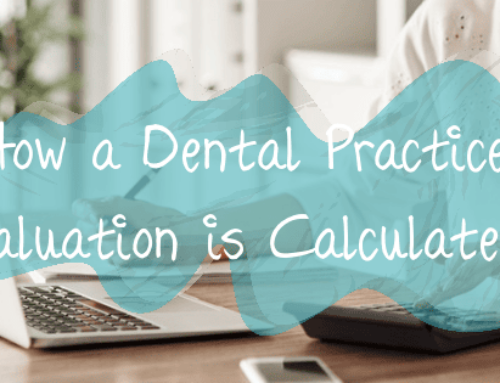Although selling your own dental practice might sound simple, it’s not an easy thing to accomplish on your own. According to Dentistry IQ, dental practice management consultants agree that, whether you are a buyer or seller, a dentist looking to transition in or out of any dental practice needs to formulate a plan with a team of experienced advisors including a financier, consultant, appraiser, attorney and a CPA with experience handling dental practice transitions. Did you know that a dental broker can handle that for you? Here are five things that can happen if you choose to take on this sale alone.
1. Low Appraisal
Just using any accountant to appraise your dental practice can result in a low appraisal and not getting what your practice is truly worth. In most cases, appraisers will use the same process they use to appraise other establishments like restaurants or manufacturing facilities. Not using someone who’s experienced with selling your type of practice, means your dental practice could be undervalued. A dental broker works solely with dental practices and knows the ins and outs, giving you the most out of your investment.
2. Not Private
When selling your dental practice on your own, it will be hard to keep your whereabouts confidential. You will be busy handling ads, potential buyers, and any necessary paperwork. This will make it easy for your staff to know what’s going on and potentially cause them to worry about where the practice is heading. You don’t want others to be aware of any major changes until you’ve found a purchaser and got all agreements in order. A dental broker will take care of all of this for you, providing you with time to run your business as usual.
3. Rushed Decisions
Negotiating directly with potential purchasers may cause issues. There are tough decisions to be made, and it’s not easy to navigate negotiations on your own, especially if you’ve never sold a dental practice before. When you have a dental broker by your side, you will have the time to think through each negotiation before deciding. Your broker will also be able to give you advice on what’s best for you and your practice.
4. Bad Marketing
Selling a dental practice means getting the right prospects in the room. Without a marketing strategy, it could take longer to sell your practice. A dental practice needs a listing that’s detailed with the right information. A broker can provide value to your listing to get the right buyers interested in your practice. With the right buyers, you can expect to get the full asking price and experience a shorter sale time.
These are just a few things that could happen if you try to sell your dental practice on your own. If you want a high appraisal, more confidentiality, a quick sale, and the right buyer, work with an experienced dental broker. Selling a dental practice in todays marketplace is not a simple task. Get in touch with our team today at Professional Practice Sales to learn how we can maximize your investment.







